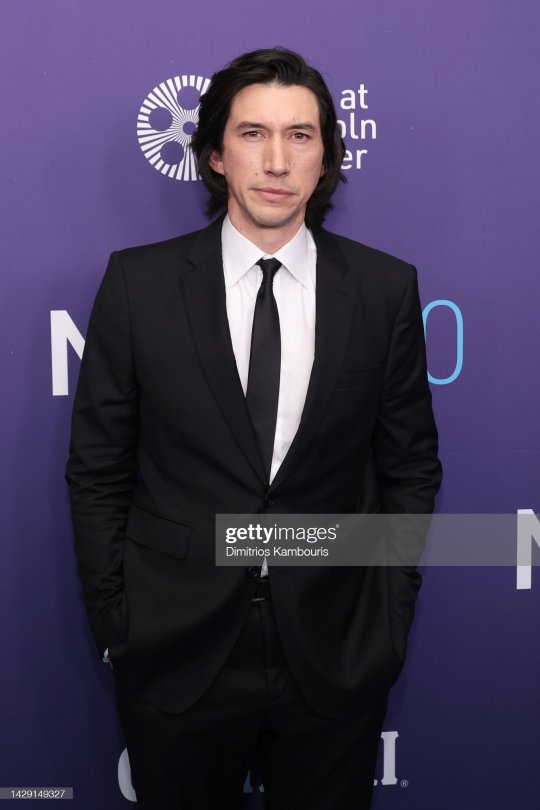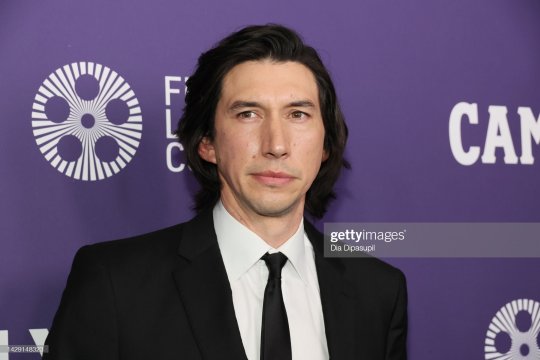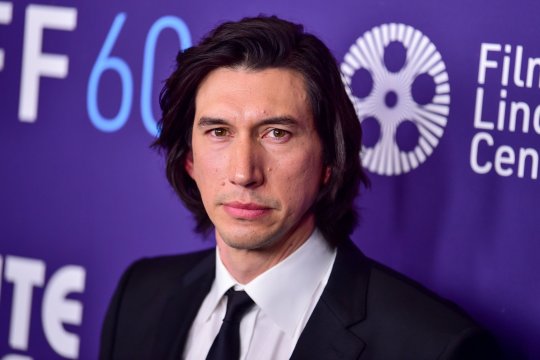#New York Film Festival
Text


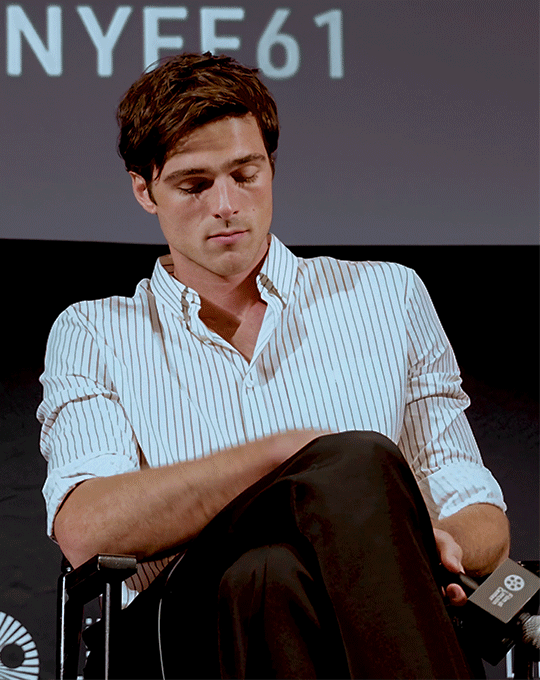
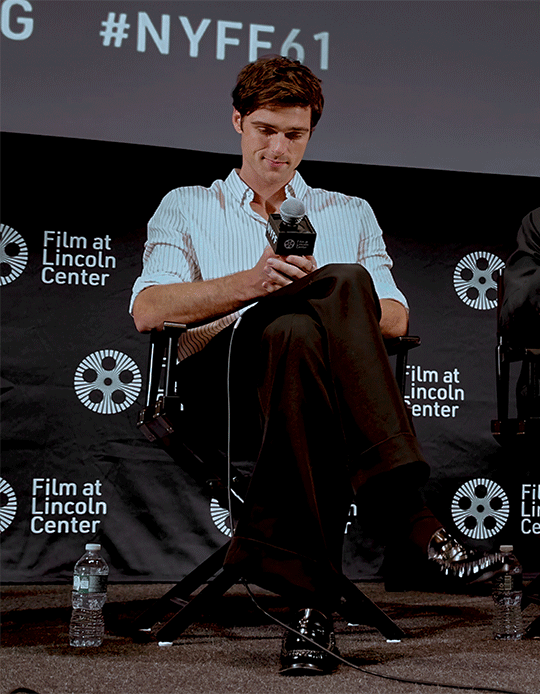
Jacob Elordi
2023 New York Film Festival | NYFF61
#feeling like i wanna save a princess from a castle#jacob elordi#priscilla#priscilla 2023#nyff61#new york film festival#beautiful men#priscilla press
707 notes
·
View notes
Text
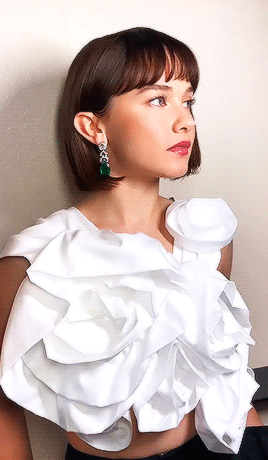
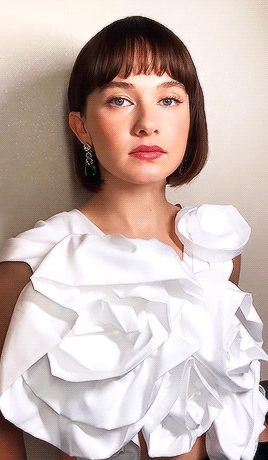
CAILEE SPAENY
Hair styled by Kiley Fitzgerald ahead of the New York premiere of Priscilla at the 61st New York Film Festival on October 6th 2023
#cailee spaeny#cspaenyedit#caileespaenyedit#priscilla#nyff#new york film festival#nyff 2023#dailywomen#womenedit#flawlesscelebs#femaledaily#priscillacastedit#breathtakingqueens#civilwarcastedit#a24#civil war#tuseremmy#tusermary#usercline#gifset#actoredit#my edit
90 notes
·
View notes
Text
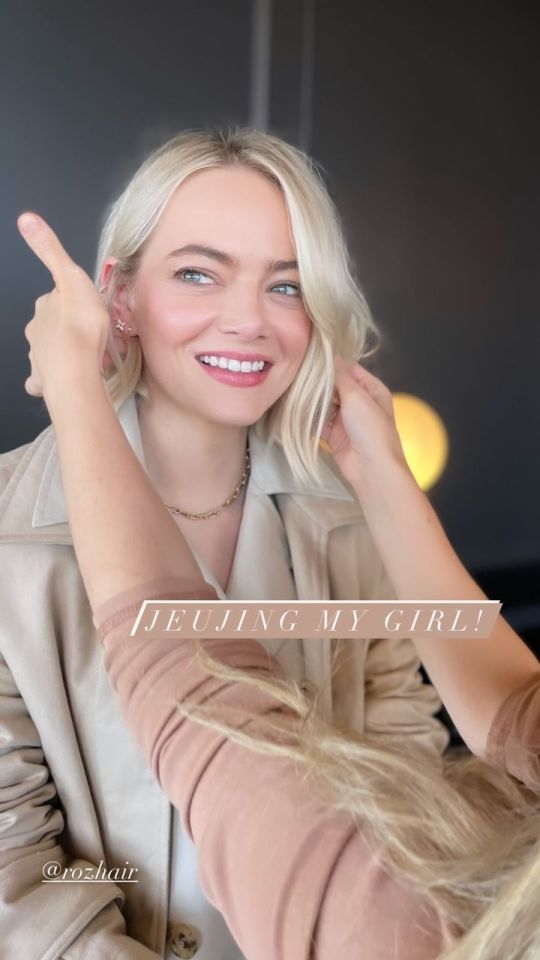
Emma Stone at the New York Film Festival
293 notes
·
View notes
Text


Heather Graham attends the New York Film Festival opening night premiere of "The Darjeeling Limited" at Avery Fisher Hall, Friday, Sept. 28, 2007 in New York.
327 notes
·
View notes
Text
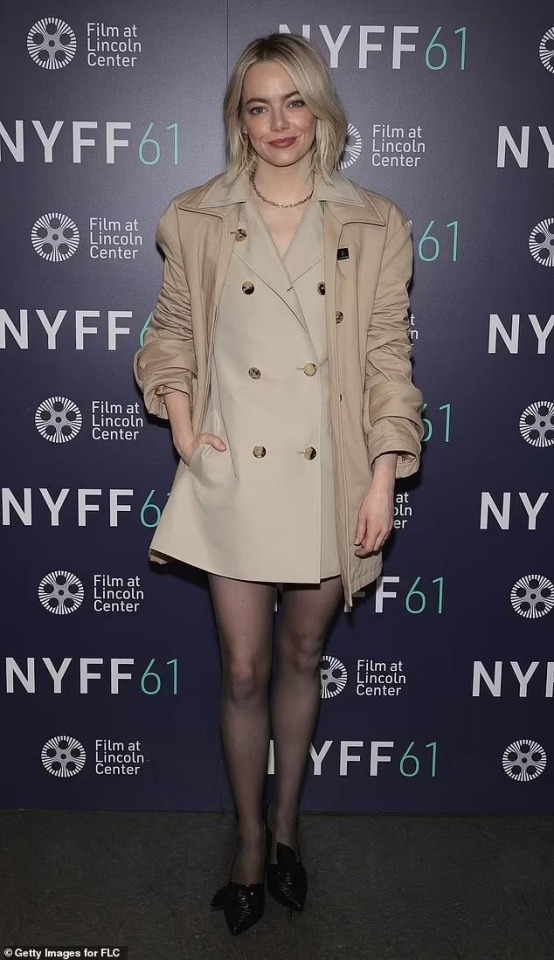
EMMA STONE at the 2023 New York Film Festival on October 4th 2023 in LOUIS VUITTON
#emma stone#louis vuitton#actress#poor things#love#new york film festival#style#golden globes#fashion#nyff#fashion journalism#gorgeous#celebs#celebrities#celebrity#celebrity fashion#stunner babe#celebrity style#fancyschmancy#beauty#makeup#red carpet#red carpet fashion#hot celebs#beautiful#stunning#pretty#red carpet looks#red carpet dress#femaledaily
57 notes
·
View notes
Text

The most beautiful man on earth
93 notes
·
View notes
Text
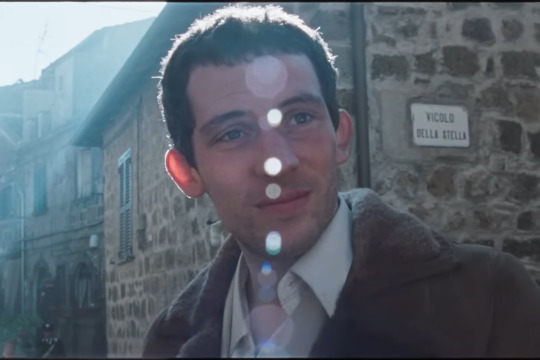
New York Film Festival 2023:
La Chimera (Alice Rohrwacher), 2023
#films#movies#stills#La Chimera#Alice Rohrwacher#women directors#Josh O'Connor#Italian#2020s#NYFF#NYFF61#New York Film Festival#seen in 2023
72 notes
·
View notes
Text
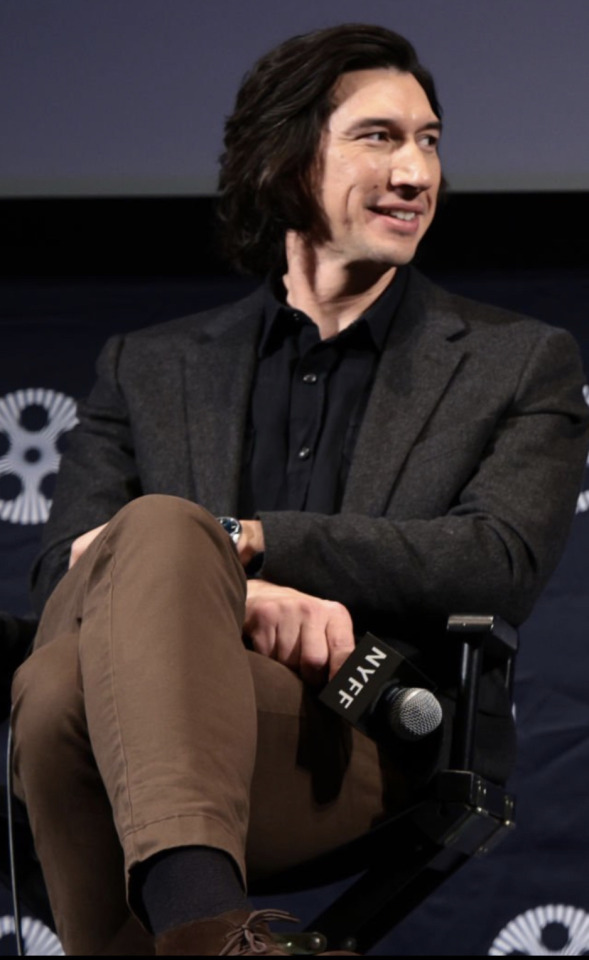

Adam Driver at the "Ferrari" press conference during the 61st New York Film Festival on October 13, 2023. ✨✨✨
34 notes
·
View notes
Text
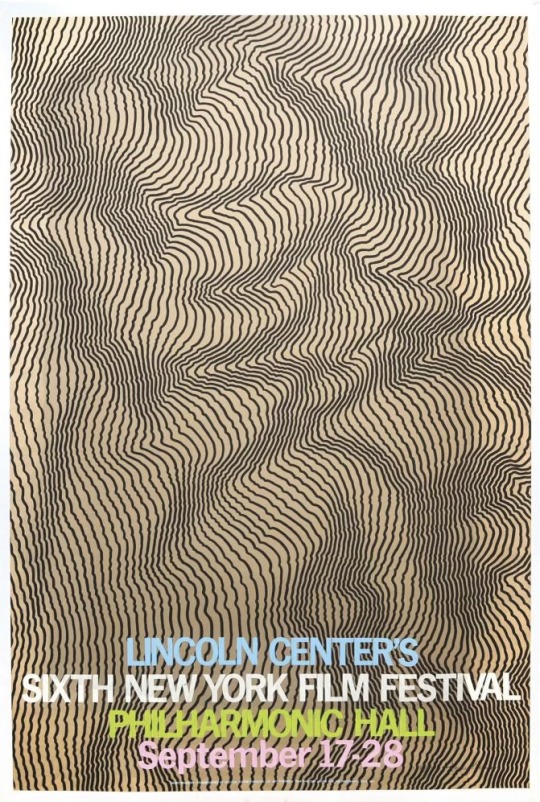
43 notes
·
View notes
Text
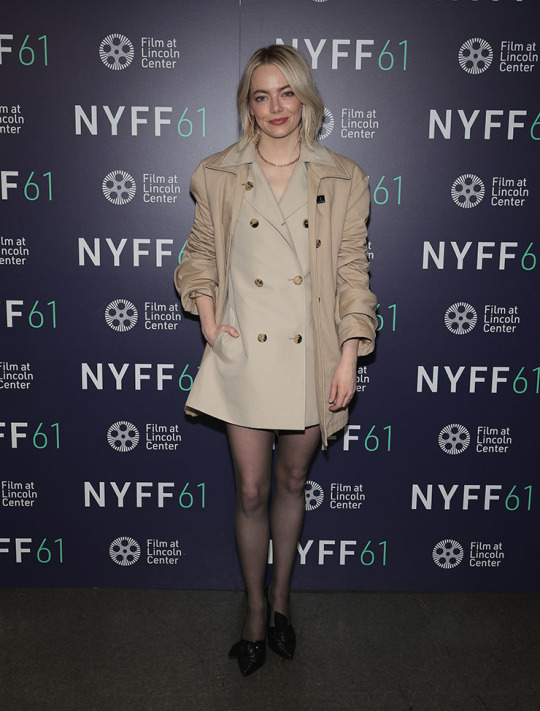
29 notes
·
View notes
Text
'When Andrew Haigh was shooting his new film, All of Us Strangers, in his parents’ old house in Croydon, something strange began to happen. “I started getting eczema again, and I’d not had eczema since I was a kid,” says the director, who is now 50. “It was coming up in the exact same places. I thought, ‘What the fuck is happening to me?’ I feel there is a sense that your body remembers trauma. Somehow things get almost embedded in your DNA, and they find ways to leak out.”
In All of Us Strangers, this leakage happens to Adam, a 46-year-old gay man exquisitely played by Andrew Scott. He’s a blocked, depressed screenwriter whose parents died in a car crash when he was 12, and who lives in a mysteriously empty tower block in London. One night after a fire alarm, a younger man called Harry, played by Paul Mescal, drunkenly comes to his door. Although Adam initially rejects him, the pair later embark on the love affair he has always yearned for – and Mescal and Scott are explosively convincing as a couple. “Casting is like running a dating agency,” says Haigh. “I have to be careful to pick the people who will be good together.” When Adam decides to return to the house he grew up in, he discovers that his mum and dad – played by Jamie Bell and Claire Foy – are still living there, the same age they were when they died, in a perpetual 1987.
The film – which won best film and best director at the British Independent Film awards in December – somehow blends a love story, a ghost story, and a time-flipped coming-of-age narrative. The result is a masterful exploration of loneliness and grief, the relationship between children and their parents, and a demonstration of the fact that time, far from healing, can bring childhood trauma rearing up stronger than ever in middle age. But it’s also a tender, aching expression of the insatiable human need for love and connection, which Haigh depicts as being so powerful that it can annihilate the border between life and death. “All the people in the film are longing for something – to be understood, to be known,” Haigh says.
All of Us Strangers is a “very free” adaptation of a Japanese novel called Strangers by Taichi Yamada (who died last month aged 89), which the film-maker wrote during the pandemic while living in Los Angeles. “There’s a pandemic emotion at the heart of it,” he says. “We all spent a lot of time staring out of the window, didn’t we?” Sitting in a Soho hotel suite, Haigh – whose previous films include Weekend and 45 Years, and who also made the TV series Looking and The North Water – was keen to make the film “as personal as I could. It’s about someone having a reunion with their own past so it made sense that I had to do the same thing. As I was writing about the home Adam goes back to, I started thinking about my own childhood home, and when we were talking about where to shoot I thought, ‘I’ll just go down and see if it’s still there.’ I couldn’t remember where it was on the street because I left there when I was nine or 10” – when his parents divorced – “but I had the photo that Adam lifts up in the film, with Claire Foy put in instead of my mum.”
Haigh found the house and the owner agreed to let him film there. “It was a strange choice, emotionally, because I knew it wouldn’t be the easiest place to be. But I wanted the film to have a certain honesty and vulnerability, to feel grounded in some kind of reality. The only way was to make it my own reality, as a way to make it specific in the hope that it would speak to all those details of life that end up feeling universal.”
The reality he’s talking about is that of a middle-aged gay man who was a young teenager at the end of the 80s, when the Aids crisis unleashed a wave of savage homophobia (a survey in 1987 discovered that 75% of the UK thought homosexuality was “always” or “mostly” wrong). “I wanted it to be very specific about a certain generation of gay person, which was our generation,” Haigh says when I tell him I’m also gay, and a year younger than him. “It wasn’t an easy time. Growing up, I felt, ‘If I’m going to become a gay person I’m not going to have a future, and the only other alternative is not to be gay’ – which of course you can’t not be. So I wanted to tell that story.”
All of Us Strangers depicts someone struggling with the lasting effects of a childhood disfigured not only by bereavement, but also by prejudice and hatred. “There’s a generation of queer people grieving for the childhood they never had,” Haigh says. “I think there’s a sense of nostalgia for something we never got, because we were so tormented. It feels close to grief. It dissipates, but it’s always there. It’s like a knot in your stomach.”
Much of All of Us Strangers’ emotional power comes from the brutally repressed Adam attempting to dispel his feelings of shame and isolation in order to be seen and loved for the person he truly is. To this end, he takes the opportunity, denied to him by their death, to come out to his mum and dad, separately. His mum is shocked – “Isn’t it a very lonely life?” – and worried about Aids. His dad, not unkindly, says: “We always knew you were a bit tutti-frutti.” Says Haigh: “The coming-out scenes are about the importance of being known. It’s very hard to move through life if you feel you’re not understood. And if you’re not understood, you feel you’re alone.”
Adam asks his father why he would never come into his room to comfort him when he was crying after being bullied at school – something else Haigh suffered. “I was about nine, and the kids around me knew something was different about me before I really did,” he says. “So you’re like, ‘I don’t understand why you’re calling me these names.’ But they could feel it somehow. When my mum saw the film, she was like, ‘Is this what happened to you?’ And I was like, ‘Yes.’ If you’re a queer kid, you don’t want to tell your parents you’re being bullied, because they’re going to think you’re different, and that’s the last thing you want. It’s the hardest thing, sometimes, about being queer within a family – you’re not like your parents and you have a secret.”
Haigh came out to his parents in his mid-20s. His father now has dementia, and went into a care home during the making of All of Us Strangers. Visiting him one weekend, the film-maker discovered his dad no longer remembered his son was gay. “He was like, ‘Are you married? Have you got a wife?’ I’ve been out to my dad for a very long time and he’s been beautifully accepting, and it had completely gone from his mind. I found myself suddenly having the same fear I had when I was in my 20s, of having to come out to him again. And I realised I couldn’t do it because I didn’t want to upset him. But in the end he was quiet for a while and then he said, ‘Well, as long as you have found love.’ It felt like such a beautiful thing for my dad to say. He just understood what was the important thing, and in so many ways it spoke so much to what the film is about. And then I had to come down again and shoot that scene with Jamie and Andrew in my old lounge, so it was emotionally complicated.”
The film also draws on Haigh’s relationship with his own children, who are 10 and 12. “They don’t live with me full-time, but when I’m with them and I’m their parent, I’m always worried. Am I doing the right thing? Am I saying the right thing? Am I helping them? As I’ve got older I’ve realised you don’t need a parent to give advice, necessarily. You don’t need them to solve things because sometimes you can only solve it yourself.”
Beyond fulfilling the needs of a child, there is something about being a queer parent that makes one wonder how you and your children will fit into broader society. “It’s like, ‘Are we different?” Haigh asks. “Do we have a new way of being? Do we have a different way that our families can exist, because we don’t have a model? I know a lot of queer people who have kids and they’re all trying to navigate that. Are we trying to be like our parents were to us, or are we trying to be something else?”
All of Us Strangers is particularly acute in its use of 80s hits such as The Power of Love by Frankie Goes to Hollywood, Johnny Come Home by Fine Young Cannibals and Build by the Housemartins, all of which Adam listens to while mulling over his childhood, and which then becomes part of the supernatural world he visits (he and his parents joyfully put up festive decorations to Pet Shop Boys’ Always on my Mind, Christmas No 1 in 1987). To young gay boys denied role models – especially when section 28 made it illegal for schools and local authorities to offer positive representations of homosexuality – and who were too terrified to disclose our queerness to our dads, gay pop stars like Neil Tennant and Holly Johnson, and also gentle straight frontmen such as Roland Gift and Paul Heaton, were the only people who seemed to point the way to how we might be able to live as grown men.
“Paul Heaton and Roland Gift aren’t queer artists, but they so spoke to me,” Haigh agrees. “I’m sure my political viewpoints are based on listening to the Housemartins” – who were avowedly socialist at the time of the Thatcher government. “Pop music was so important – it gave me hope as a kid. I used to sing The Power of Love to myself in my bedroom, not really understanding anything about myself at that point, but knowing that it was longing for something, and believing that something could be possible. When I put this song in the film, I was thinking that my childhood self would have been so amazed that I’m doing what I’m doing now – able to tell a story about queerness for other people to see, and not be terrified.”
“I never dreamed that I would get to be / The creature that I always meant to be,” as Pet Shop Boys put it in Being Boring? “Don’t!” Haigh says, who is a diehard fan. “I can’t even listen to that line – it makes me want to burst into tears.”
As he comes out to her, Adam explains to his mother that things are much better for gay people now, and his relationship with Harry, a northerner in his 20s, allows Haigh to explore the personal effects of those changes – and whether they have really gone as far as one might think. For instance, Harry identifies as queer, and when Adam says he uses the term gay, Harry tells him the word was a ubiquitous insult when he was at school: “Your haircut’s gay. Your schoolbag’s gay.” Harry says his family are relaxed about his sexuality, but their focus is on his heterosexual siblings and their children, not the tache-wearing, whisky-swigging black sheep of the family.
Is Haigh saying that to be gay is to be alienated? “I don’t think so,” he says. “I know a lot of young gay people who do not feel alienation. I imagine some of them will watch this film and be like, ‘Why are they all complaining? There’s nothing to moan about, life is absolutely fine.’ But I also know people close to me, younger than me, who’ve found it very difficult. So I don’t want to pretend that everything is all great either. But also, it’s important to me that both characters are not lonely because they’re gay – they are lonely because the world has made them feel different. Harry has moved to London, which can be a very alienating place. There are lots of reasons why you can slip gently into aloneness and if you cannot find something to get you out of that, you can stop caring about yourself, which is Harry’s problem.”
Like Weekend, All of Us Strangers is frank about drug use. In a moment of gay inter-generational misunderstanding, Harry gives Adam white powder on a key, which Adam lustily sniffs thinking it’s cocaine – but it’s ketamine. “To pretend that drug use isn’t part of the gay scene is just an absolute lie,” Haigh says. “I think I’ve always tried not to glorify drug-taking, but to be honest – drugs can feel wonderful and also make you feel paranoid and afraid and alone. You can slip away, you can lose your grounding. I’m certainly not saying that everyone should go out and take drugs!”
As its narcotic, dreamlike feel sets in, All of Us Strangers increasingly wrongfoots the audience. “I saw the film as a spiral, and it kept getting woozier and stranger,” Haigh says. Adam starts to get feverish, which is unexplained in the film, though Haigh points out that it happens after his mother mentions Aids. “I think all of us gay men of that generation know that every time we had a bit of a sweat if we were having sex with other people, we were suddenly terrified that we were going to have HIV,” Haigh says. “A swollen gland was not just a swollen gland. I wanted to have that trickling under the surface, that Aids is another fear that Adam has buried. I’m telling a ghost story – what are the things that haunt him?”
The film’s more surreal moments include a trippy, time-warping scene set to Blur’s Death of a Party and filmed at gay pub the Royal Vauxhall Tavern in London, where Haigh used to go to the club night Duckie; and a setpiece in which the adult Adam, wearing his childhood pyjamas, gets in bed between his parents. “However old you are, you feel like a kid,” Haigh believes. “You can’t escape that feeling of wanting to be with your parents again and have them look after you. I loved the idea that these pyjamas didn’t fit, because we want to go back to our childhood, but of course it doesn’t fit.”
Towards the end of the film, Adam’s parents take him to a deserted diner in the Whitgift shopping centre in Croydon, Haigh’s childhood haunt (“at Fairfield Hall next door I saw Bucks Fizz, which was the first concert I went to, which may be the gayest thing anybody’s ever done”). In this tacky, mundane setting, something painfully bittersweet occurs. Then there’s the film’s conclusion, which can either be read as romantic and hopeful, or a vision of overwhelming sadness. “More than anything, I wanted you to leave the cinema and have the film continue on within you,” Haigh says. “45 Years was the same, and even Weekend.”
This month, the LA Times named All of Us Strangers as the best film of 2023; at the New York film festival, the critic Mark Harris said the cinema was awash. The consensus so far appears to be not only that it is a masterpiece, but a profoundly moving one. Haigh is relieved: “When you make something personal, you’re putting it out into the world, and if the world turns round and says, ‘I don’t like that and I don’t care about it’, you can’t help but think, ‘OK, you basically don’t care about me.’”
Although the film has a particular, queer point of view, he believes its universal themes make it accessible to everyone. “All of us are children, a lot of us are parents, a lot of us are in a relationship or not finding love. Look, I want 15-year-olds to see this movie, not just people our age. If I had seen this film when I was 15, it would probably have made a big difference to me.”'
#Andrew Haigh#All of Us Strangers#LA Times#New York Film Festival#Weekend#45 Years#Andrew Scott#Paul Mescal#Strangers#Jamie Bell#Claire Foy#British Independent Film Awards#Looking#The North Water#Taichi Yamada#The Power of Love#Frankie Goes to Hollywood#Always on My Mind#Pet Shop Boys#Johnny Come Home#Fine Young Cannibals#Build#The Housemartins#Neil Tennant#Holly Johnson#Paul Heaton#Roland Gift#Royal Vauxhall Tavern#Blur#Death of a Party
7 notes
·
View notes
Text


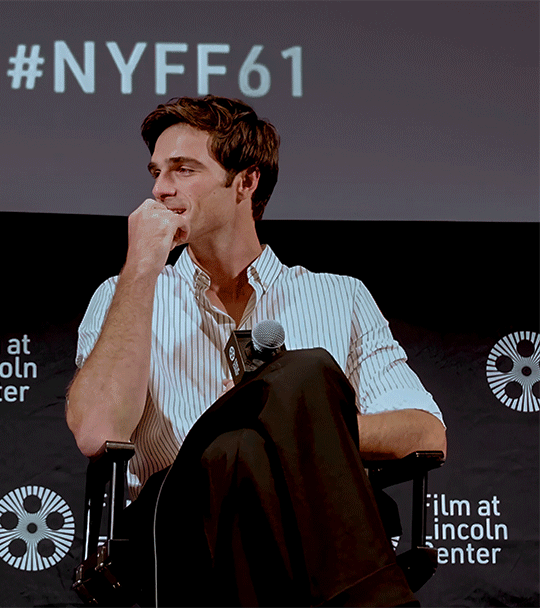



JACOB ELORDI
2023 New York Film Festival | 🎭NYFF61
#jacob elordi#priscilla#priscilla 2023#priscilla press#nyff61#new york film festival#beautiful men#cailee spaeny
174 notes
·
View notes
Photo
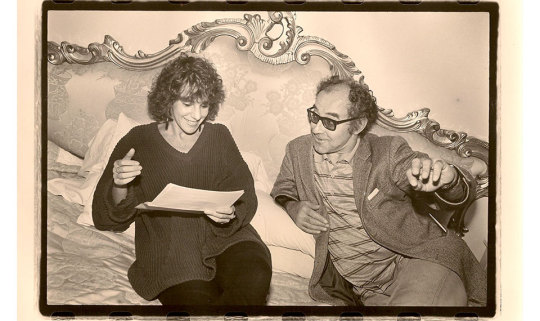
Bette Gordon interviewing Jean-Luc Godard in his hotel room in 1986 when he made at the New York Film Festival, 1985
147 notes
·
View notes
Text

Jacob Elordi | Dior Men Spring 2024 ensemble | New York Film Festival | 2023
#pc: rcfa#jacob elordi#dior men#dior men spring 2024#new york film festival#2023 new york film festival#2023
12 notes
·
View notes
Text
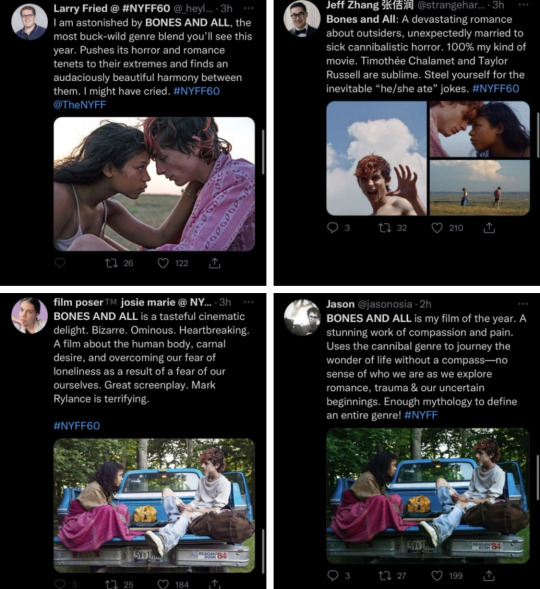





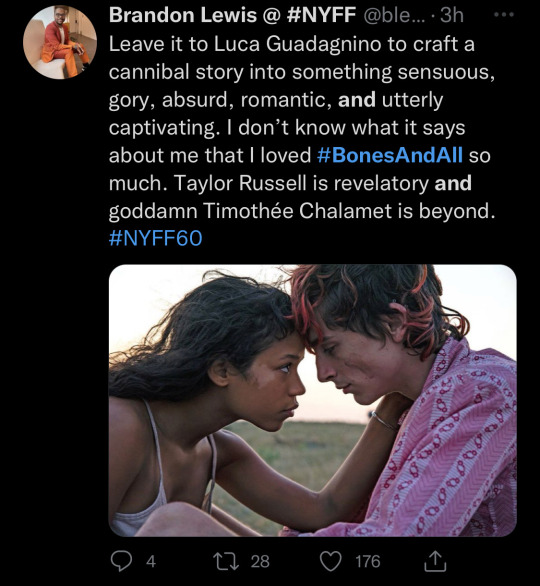
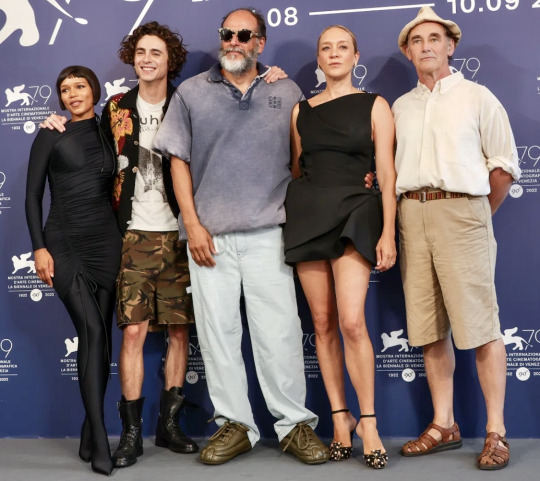
So many positive reviews! (Sept. 28, 2022). 💥
#timothee chalamet#timothée chalamet#wow#bones and all#taylor russell#new york film festival#nyff#luca guadagnino#mark rylance#chloe sevigny
135 notes
·
View notes
